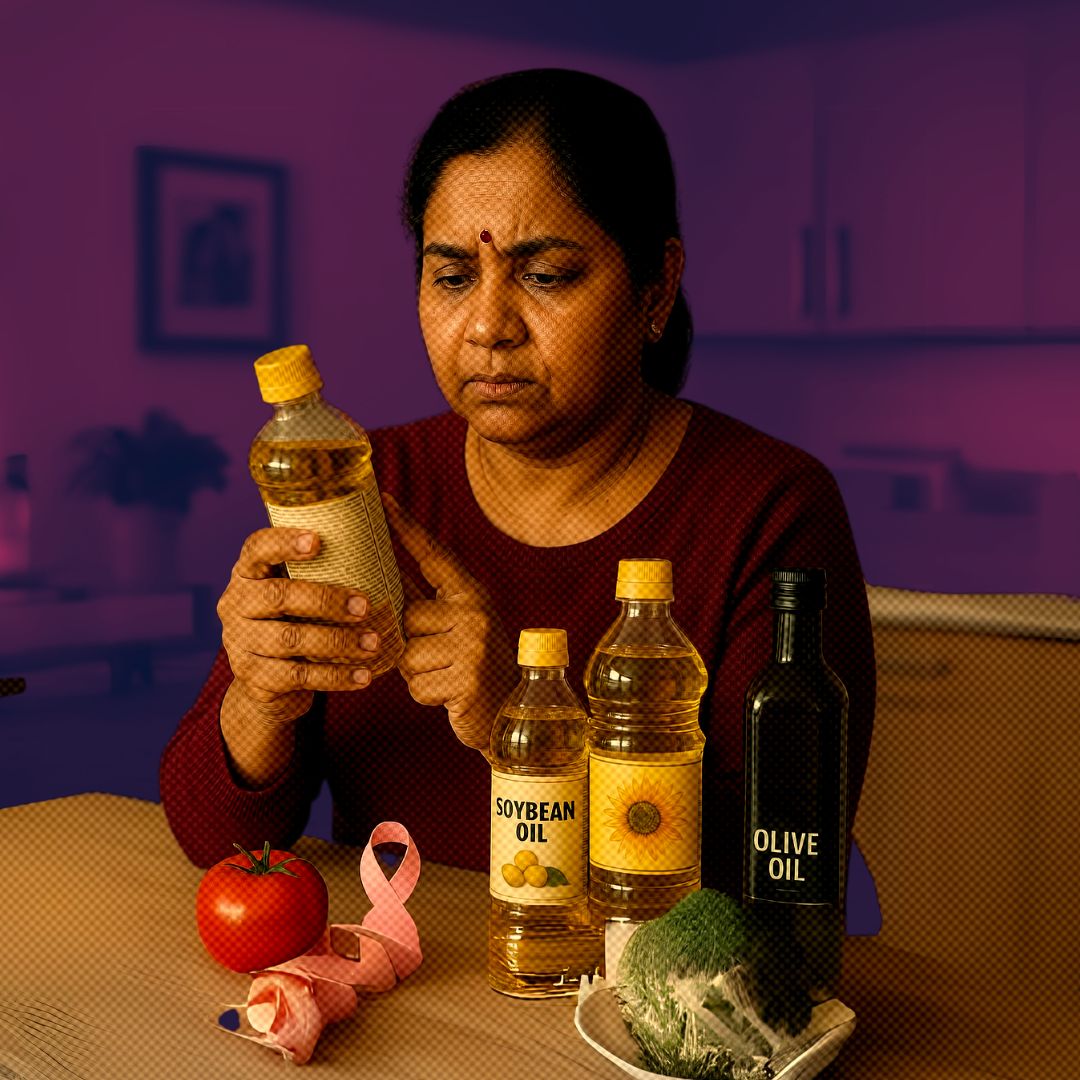Health experts globally are urging moderation in seed and vegetable oil consumption after groundbreaking research from New York’s Weill Cornell Medicine revealed a direct molecular link between linoleic acid—an omega-6 fatty acid prevalent in these oils—and the progression of aggressive triple-negative breast cancer (TNBC).
Published in March 2025, the study demonstrates how linoleic acid activates cancer growth pathways, specifically in TNBC cases that account for 10-15% of breast cancers and have a five-year survival rate of 77% compared to 90%+ for other subtypes.
Researchers, oncologists, and public health advocates now call for revised dietary guidelines and personalised nutrition strategies for high-risk groups.
Molecular Culprit Identified: How Linoleic Acid Fuels Tumours
The study found that linoleic acid forms a complex with fatty acid-binding protein FABP5, directly activating the mTORC1 pathway—a cellular “growth accelerator” implicated in 70% of human cancers. In mouse models, tumours in high-linoleic acid diet groups grew 300% faster than control groups.
Lead researcher Dr. John Blenis advises: “This isn’t about eliminating all omega-6s but understanding their context. For TNBC patients or those genetically predisposed, even standard cooking oil usage might need reevaluation.”
The team analysed over 150 tissue samples, finding FABP5 overexpression in 60% of TNBC cases but only 15% of hormone-receptor-positive tumours.
Dietary Shifts and Conflicting Evidence: Why This Matters Now
The findings arrive amid a global surge in seed oil consumption, with soybean oil use tripling worldwide since 2000. While the American Heart Association recommends omega-6s for heart health, this study adds to growing concerns about their inflammatory effects.
Dr. Lisa Coussens, President of the American Association for Cancer Research, cautions: “This compels us to re-examine blanket dietary advice. We need stratified guidelines—what’s protective for cardiovascular systems might inadvertently harm oncology outcomes.”
Nutritionists emphasise balancing omega-6 and omega-3 intake, noting that modern diets often have a 16:1 imbalance (recommended ratio: 4:1). India’s scenario remains complex, with traditional mustard oil (low linoleic acid) increasingly replaced by blended vegetable oils containing 50-60% linoleic acid.
Expert Guidance: Who Should Reconsider Their Oil Choices?
Researchers stress that the findings primarily concern TNBC patients and high-risk groups, not the general population.
Key recommendations include:
- Personalised Nutrition: TNBC patients should consult oncologists about oil alternatives like olive or coconut oil.
- Balanced Fatty Acids: Increase omega-3 intake through walnuts, flaxseeds, and fatty fish to counterbalance omega-6s.
- No Blanket Bans: Linoleic acid remains essential for skin and metabolic health; elimination risks deficiency.
- Precision Labeling: Advocacy for linoleic acid content disclosures on edible oil packaging.
- Further Research: Large-scale human trials to confirm mechanisms and refine guidelines.
The Logical Indian’s Perspective
We believe this research underscores the critical need for evidence-based dietary guidance that balances emerging scientific findings with cultural and nutritional realities. While the link between linoleic acid and aggressive breast cancer is concerning, we advocate for nuanced public health messaging that neither demonizes everyday cooking oils nor downplays their potential risks for vulnerable groups.
How can we ensure nutritional advice respects both science and cultural practices, empowering individuals without causing unnecessary fear? Share your ideas to shape a healthier, more informed India.













